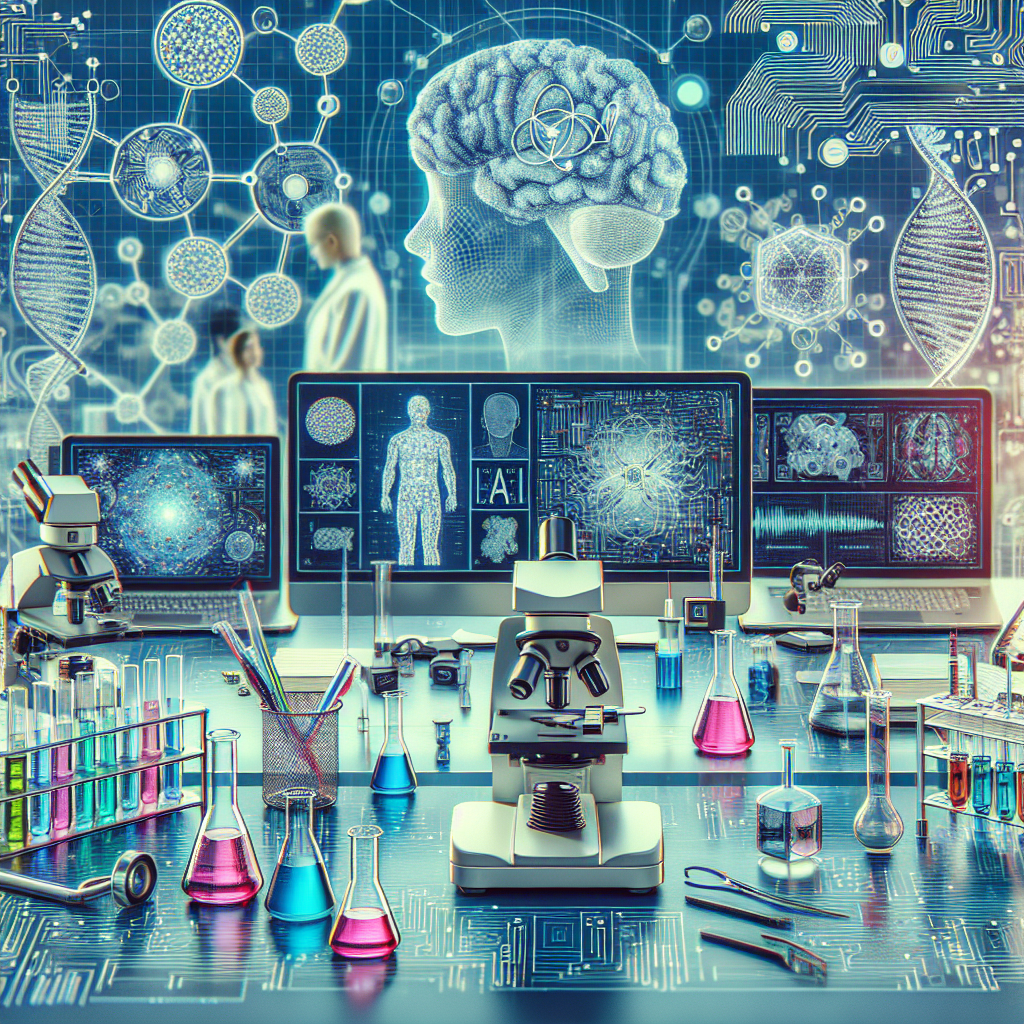Artificial intelligence (AI) software has been revolutionizing the way scientific research is conducted across various fields. From analyzing large datasets to predicting outcomes and generating new hypotheses, AI has the potential to significantly impact the way researchers work and make discoveries. In this article, we will explore the role of AI software in scientific research and its implications for the future.
One of the key ways in which AI software is being used in scientific research is in data analysis. With the increasing amount of data being generated in fields such as genomics, astronomy, and climate science, traditional methods of data analysis are no longer sufficient. AI algorithms can quickly and accurately analyze large datasets, identify patterns, and extract meaningful insights that may have been missed by human researchers. This has the potential to accelerate the pace of scientific discovery and lead to new breakthroughs in various fields.
Another important role of AI software in scientific research is in predictive modeling. AI algorithms can be trained on historical data to make predictions about future outcomes or trends. For example, AI models can be used to predict the spread of infectious diseases, analyze climate change patterns, or forecast the behavior of complex systems. These predictions can help researchers better understand the underlying mechanisms at play and make informed decisions based on the data.
Furthermore, AI software can also be used to generate new hypotheses and design experiments. By analyzing existing data and identifying patterns, AI algorithms can propose new research questions or suggest potential avenues for further investigation. This can help researchers explore new areas of study and uncover novel insights that may have been overlooked using traditional methods.
In addition to data analysis and prediction, AI software is also being used in scientific research for automation and optimization. For example, AI algorithms can automate repetitive tasks such as image analysis, data entry, or literature reviews, freeing up researchers to focus on more creative and intellectually demanding tasks. AI can also optimize experimental design by identifying the most relevant variables to test and suggesting the most efficient approaches to data collection and analysis.
Overall, the role of AI software in scientific research is multifaceted and has the potential to transform the way research is conducted across various fields. By leveraging the power of AI algorithms, researchers can analyze large datasets, make predictions, generate new hypotheses, and automate tasks, leading to faster and more efficient scientific discovery.
FAQs:
1. How is AI software different from traditional research methods?
Traditional research methods rely on human researchers to analyze data, make predictions, and generate hypotheses. AI software, on the other hand, uses algorithms to automate these tasks and identify patterns that may have been missed by humans. This can lead to faster and more accurate results in scientific research.
2. What are some examples of AI software being used in scientific research?
AI software is being used in a wide range of scientific fields, including genomics, astronomy, climate science, and drug discovery. For example, AI algorithms are being used to analyze genetic data, predict the behavior of complex systems, and design new drugs.
3. How can researchers leverage AI software in their work?
Researchers can leverage AI software by incorporating it into their data analysis workflows, using it to make predictions and generate hypotheses, and automating repetitive tasks. By integrating AI into their research processes, researchers can accelerate the pace of scientific discovery and uncover new insights.
4. What are the potential challenges of using AI software in scientific research?
One potential challenge of using AI software in scientific research is the need for large amounts of high-quality data to train the algorithms. Additionally, researchers may need to develop new skills and expertise in AI in order to effectively leverage these tools in their work. Finally, there may be ethical considerations to take into account when using AI in research, such as bias in the algorithms or privacy concerns.
5. What is the future of AI software in scientific research?
The future of AI software in scientific research is bright, with the potential to revolutionize the way research is conducted across various fields. As AI algorithms continue to improve and become more sophisticated, researchers can expect to see even faster and more efficient scientific discovery, leading to new breakthroughs and innovations.

